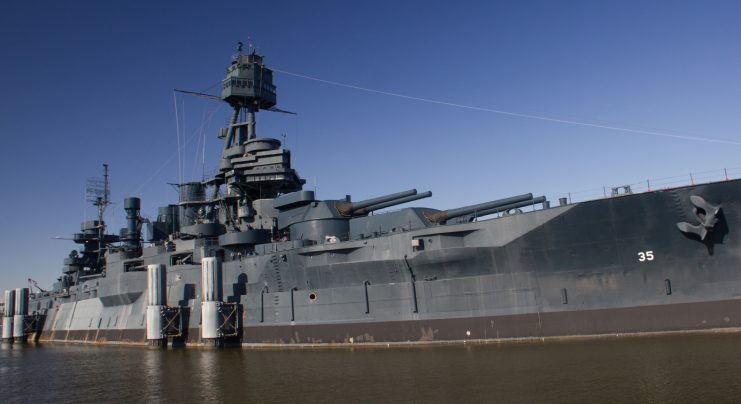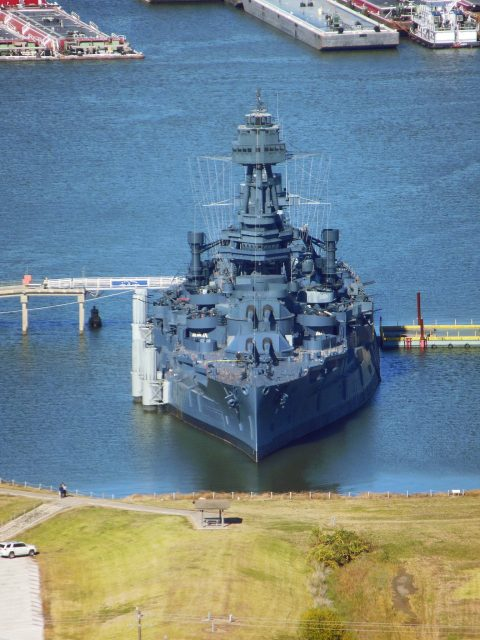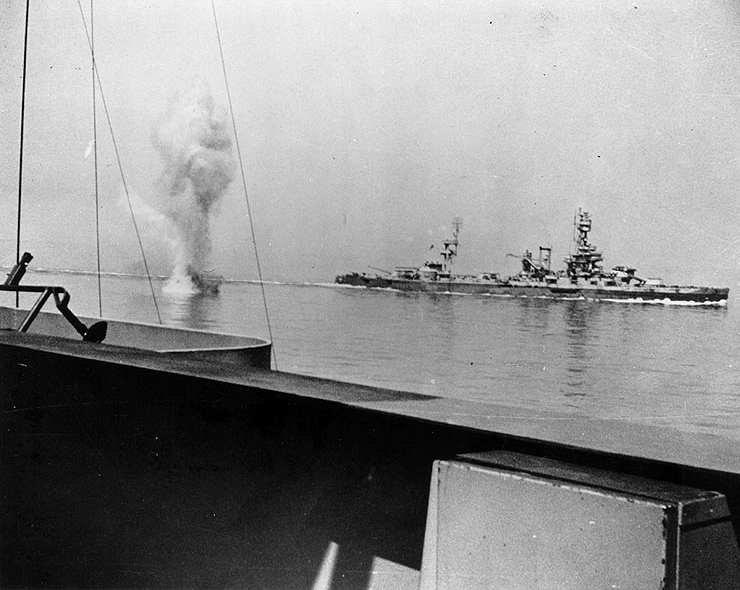Preserving History: USS Texas Handed Over to Foundation for Maintenance and Operation

USS Texas: Beginning August 1, the Texas Parks & Wildlife Department has passed operational control of the Battleship Texas to the nonprofit Battleship Texas Foundation. The foundation signed a 99-year lease according to a press release from the organization.
The battleship has not been open to the public since August of 2019 in order to prepare the ship for transportation to a shipyard where it will undergo extensive repair work. The ship won’t be moved for months still.

The ship will begin moving in November or December to arrive at an unknown shipyard in January or February. The shipyard will work on the ship for around a year.
Rumors place the unidentified shipyard in Louisiana.
Once the work is completed and the Texas travels back to its home dock, it is expected to re-open for public viewing. The foundation is aiming for the first quarter of 2022 for the re-opening but no official date has been set.
Once it is re-opened to the public, the foundation will operate the ship and keep constant maintenance and preservation efforts going. The foundation will also be responsible for new experiences and programs related to the battleship.

The foundation and the department reached an understanding in 2019 which makes the foundation responsible for maintaining the ship on behalf of the department and the state of Texas.
Battleship Texas is the last remaining battleship to have participated in both World War I and World War II.
The ship was launched in 1912. She was commissioned by the US Navy on March 12, 1914. At the time, it was the most powerful weapon in the world.
In 1916, the navy mounted anti-aircraft guns on her deck making her the first US battleship with the weapons. She was also the first US battleship to control gunfire using directors and range-keepers which utilized computers to increase the accuracy when firing.

During World War I, USS Texas sailed with the 6th Battle Squadron from the British Grand Fleet in 1918. She lay a mine barrage in the North Sea, responded to German fleet maneuvers and prevented the enemy ships from cutting off the Allies’ supply lines. The USS Texas also escorted the German Fleet to its surrender anchorage.
In 1925, the navy retooled the USS Texas instead of sending her to scrap. One of the primary upgrades was switching to fuel oil instead of coal for powering the ship.
In 1939, the USS Texas was equipped with one of the navy’s first radar units. This helped keep her as one of the most powerful ships in the US Navy despite her advancing years.
Before World War II, USS Texas was chosen to be the flagship of the US Atlantic Fleet. The ship was nearly sunk in 1941 when a German U-boat had her in its sights and requested permission to fire. Adolf Hitler denied permission to shoot at USS Texas or any other US ship at that time.
USS Texas took part in the D-Day invasions of Normandy. She fired on Nazi defenses.
Shortly after D-Day, USS Texas was hit twice by by artillery shells. The first exploded leading to the only combat fatality to occur on the ship. The second shell hit the ship but failed to explode.
After Japan surrendered to end the fighting in the Pacific during World War II, the ship was used to transport soldiers home from the war.
When the navy decommissioned her, the state of Texas purchased the ship and turned it into a memorial ship. It is a museum, a memorial, a National Historic Landmark and a National Mechanical Engineering Landmark.